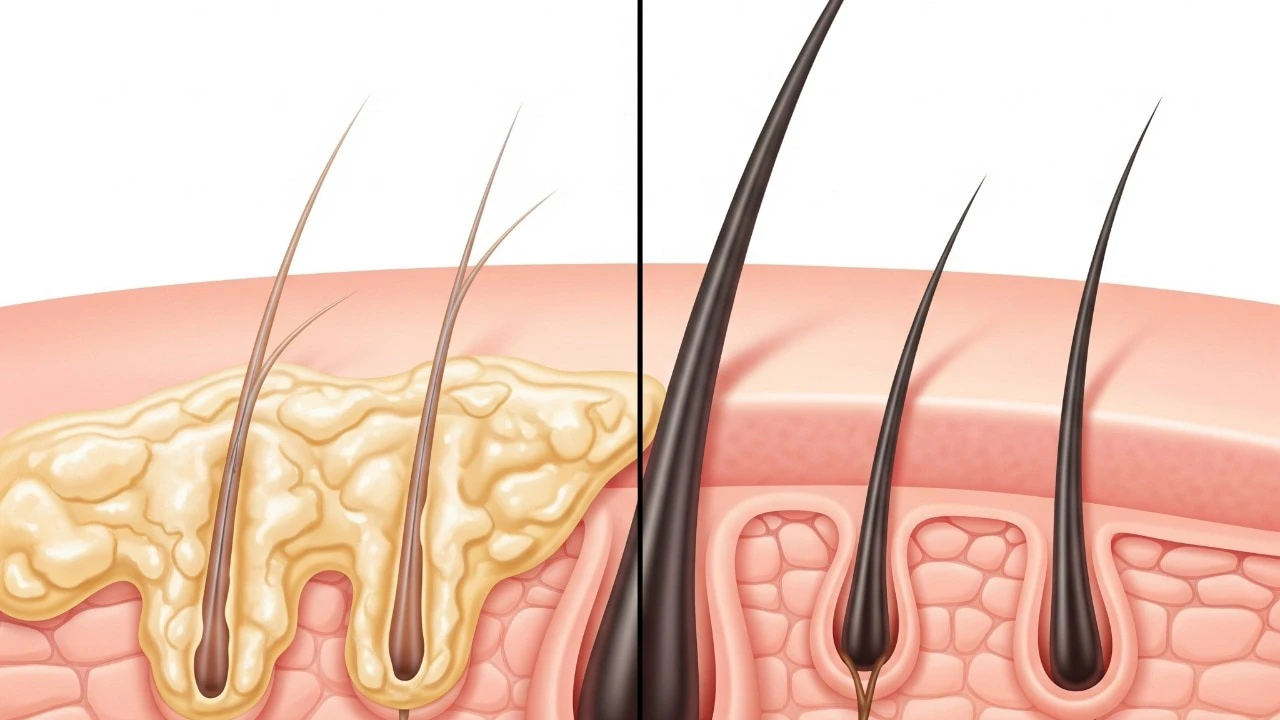For years, haircare advice has mostly centred on long lengths, split ends, and damage control. But doctors say there’s a bigger factor, we often miss the scalp.
Healthy hair begins at the root, and neglecting scalp health can trigger problems like dandruff, hair fall, and even chronic hair loss.
India Today spoke to Dr. Ritika Khanna, Hair Transplant Surgeon at DHI Medical Group, who shared why scalp care is becoming an important part of medical hair health.
“People invest heavily in skincare routines for the face but forget that the scalp is also skin,” says Dr Khanna. The scalp has more oil glands than most areas of the body, which makes it prone to buildup and inflammation. A clean, balanced scalp is essential for healthy hair growth.
Sweat, dust, pollution, and styling products don’t just affect the hair shaft; they settle on the scalp. Over time, this clogs follicles and irritates the scalp. “Many patients complaining of hair fall actually have scalp residue as the hidden cause,” Dr. Khanna explains. Regular scalp exfoliation, gentle physical or chemical, can prevent this.
THE SCALP MICROBIOME MATTERS
Just like the gut or skin, the scalp has its own microbiome a balance of micro-organisms that protect scalp health. Over-washing, harsh shampoos, or unnecessary medicated products can disrupt this balance and cause flaking, dryness, or even seborrheic dermatitis. Dr Khanna recommends using scalp-specific products and consulting a dermatologist before using strong antifungal shampoos.
BLOOD FLOW SUPPORTS HAIR GROWTH
Good circulation to the scalp is vital for follicle health. “Stimulation improves blood flow and supports hair growth,” says Dr Khanna. Evidence-backed therapies like microneedling and low-level laser treatments improve scalp vascularity. Even simple massages or inversion techniques can help over time.
HAIR LOSS STARTS EARLY
By the time thinning or bald spots become visible, hair follicles may already be shrinking or weakening. “Delaying care makes outcomes harder,” warns Dr. Khanna. Scalp assessments, such as trichoscopy, help detect early changes like miniaturisation of follicles before visible hair loss occurs.
THE ROLE OF SCALP CARE IN TREATMENT
Every clinical hair restoration plan now begins with a scalp assessment. “The scalp is the foundation of any transplant or restoration,” says Dr Khanna. Treatments like platelet-rich plasma (PRP) or growth factor concentrates (GFC), combined with personalised scalp routines, are key to long-term results.
WHEN TO SEE A DOCTOR
Seek medical advice if you notice:
- Sudden or patchy hair loss
- Persistent scalp itching or burning
- Flaking or scaling that doesn’t improve with regular care
- Painful bumps, sores, or scalp infections
- Excessive shedding during combing or washing
Doctors stress that scalp care is not an afterthought-it’s the base of hair health. Just like skincare, regular maintenance matters. A healthy scalp sets the foundation for stronger, thicker, and healthier hair.
COMMAN FAQs
1. Is scalp care really necessary if I already use a good shampoo?
Yes. Shampooing removes dirt and oil from hair strands, but scalp-specific care (like exfoliation, hydration, and circulation) ensures follicles remain healthy and unclogged.
2. How often should I exfoliate my scalp?
Most people benefit from once every 1-2 weeks. Over-exfoliation can irritate the skin, so frequency should depend on hair type, oiliness, and product use.
3. Can oiling the scalp replace scalp treatments?
Oiling can nourish and improve circulation when massaged, but it doesn’t cleanse buildup or balance the microbiome. It should be part of a broader scalp-care routine, not the only step.
4. Are medicated shampoos safe for regular use?
Not always. Overusing antifungal or medicated shampoos can disrupt the scalp microbiome. They should only be used on medical advice.
5. When should I see a doctor for scalp issues?
If you notice sudden or patchy hair loss, persistent itching, flaking that won’t go away, or scalp pain, it’s best to consult a dermatologist early.
